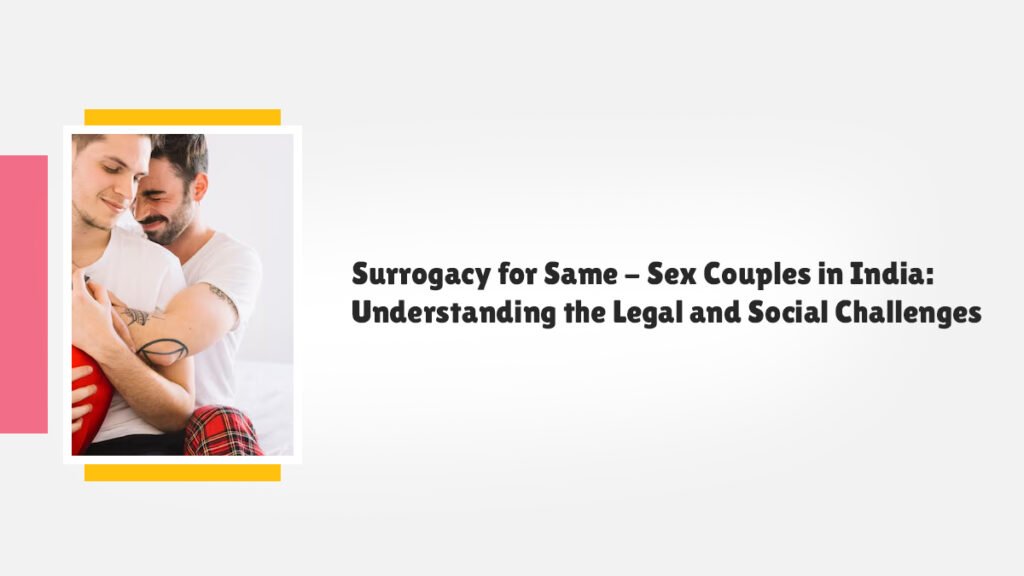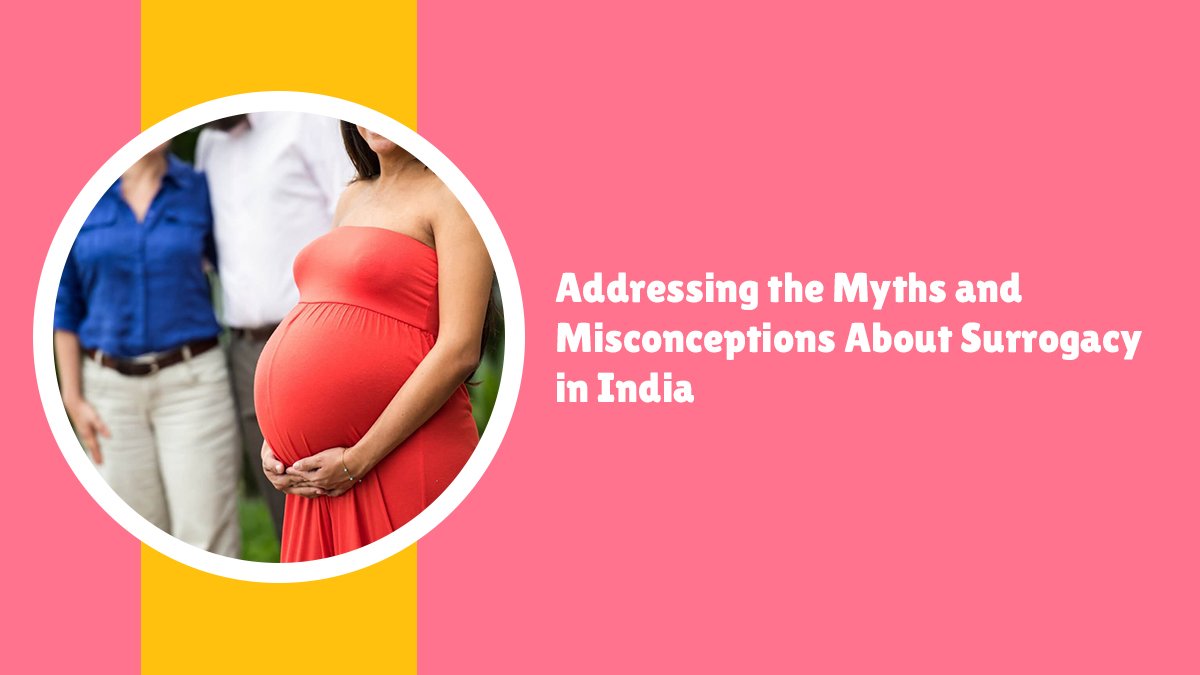Can same-sex couples in India opt for surrogacy? Surrogacy has been a beacon of hope for many couples struggling with infertility. While it provides an alternative path to parenthood, the legal landscape surrounding surrogacy treatment in India has undergone significant changes, particularly concerning same-sex couples. With evolving social perspectives and legislative amendments, understanding the challenges and opportunities in surrogacy for same-sex couples in India is crucial.
The Evolution of Surrogacy in India
India was once a hub for commercial surrogacy, attracting individuals and couples from across the world. However, concerns about ethical practices and the exploitation of surrogate mothers led to the enactment of the Surrogacy (Regulation) Act, 2021. The Act aimed to streamline surrogacy treatment while protecting the rights of surrogate mothers and intended parents.
Legal Status of Surrogacy for Same-Sex Couples
The latest amendment to India’s surrogacy laws in 2023 has maintained its restrictive stance on same-sex couples. According to the amendment, only legally married heterosexual couples are eligible for surrogacy treatment in India. This exclusion has posed significant challenges for same-sex couples wishing to build a family through surrogacy within the country.
However, many same-sex couples seek alternative options, including pursuing surrogacy in more inclusive countries or exploring domestic legal challenges to fight for their reproductive rights.
Social Challenges Faced by Same-Sex Couples Seeking Surrogacy
Beyond legal restrictions, same-sex couples in India face societal barriers when considering surrogacy treatment. Some key social challenges include:
Lack of Awareness and Acceptance: Societal norms in India still largely adhere to traditional family structures, making it difficult for same-sex couples to gain support for surrogacy.
Limited Medical Support: Many fertility clinics hesitate to extend services to same-sex couples due to prevailing legal uncertainties.
Stigma and Discrimination: Surrogacy, even for heterosexual couples, is often met with scepticism. For same-sex couples, the scrutiny can be even more intense.
Parental Rights Concerns: Since surrogacy laws in India do not recognize same-sex couples as intended parents, legal recognition of the child’s parentage can become a complex process.
Exploring Alternatives: Cross-Border Surrogacy
Due to legal roadblocks in India, many same-sex couples look toward countries with more progressive surrogacy laws. The United States, Canada, and some European nations allow surrogacy for LGBTQ+ individuals, providing a viable alternative. However, cross-border surrogacy comes with financial and logistical challenges, including travel, legal paperwork, and post-birth parental recognition in India.
Choosing the Right Fertility Clinic for Surrogacy Support
While current Indian laws prohibit surrogacy for same-sex couples, individuals seeking fertility assistance should consider trusted medical guidance. Choosing the right fertility clinic can help navigate available reproductive options, including IVF, egg or sperm donation, and embryo freezing.
Yellow IVF, a renowned surrogacy clinic in Gurgaon, provides expert reproductive care, ensuring ethical and medically sound fertility solutions. Consulting an experienced fertility specialist like Dr. Sonu Taxak can help couples explore viable reproductive pathways that align with legal frameworks.
The Future of Surrogacy for Same-Sex Couples in India
The conversation around LGBTQ+ rights and parenthood is gaining momentum in India. Legal petitions challenging the restrictive surrogacy law are ongoing, and advocacy groups continue to push for inclusivity. While the current legal environment is limiting, future reforms may offer more inclusive pathways for same-sex couples wishing to have biological children through surrogacy providers.
Conclusion
Surrogacy remains an unattainable option for same-sex couples under current Indian laws, but ongoing legal and social discourse may change this in the future. For now, alternative reproductive solutions and cross-border surrogacy provide potential options for LGBTQ+ individuals.
The path to parenthood for same-sex couples in India may be challenging, but with continued advocacy and legal progress, the hope for inclusive reproductive rights remains strong.




